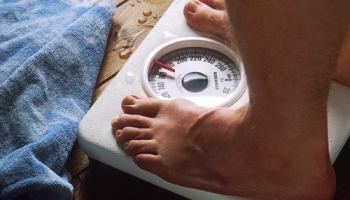Reading Time: 3 minutes
According to the National Institute on Drug Abuse, the definition of addiction is a compulsive harmful behavior. There are three types of addiction, drug addiction, alcohol addiction, and the final type compulsive or behavioral addiction.
What is Weight Loss Addiction?
Weight loss addiction is a behavioral type of addiction. It is unusual because it is both an addiction and a disorder. It is literally the addiction to losing weight. Once a person achieves the proper weight, they continue to lose. There are a number of disorders that are either created or caused by this. These disorders are:
- Eating disorder
- Body dysmorphic disorder
- Anorexia
- Bulimia

Weight loss addicts may take drugs such as amphetamines to help them lose more weight.
These disorders all are types of weight associated disorders. Weight loss addiction may be a part of these disorders or it might be a co-occurring condition. Most people suffering for a weight loss addiction go too far with things like:
- Weight loss
- Eating
- Counting calories
- Exercise
- Diet drugs
Those with this disorder sometimes find themselves in trouble with drugs such as amphetamines which are used to drop weight quickly and dramatically.
Who Suffers from Weight Loss Addiction?
There is no one demographic that suffers from this addiction. It occurs in both men and women only more often in women due to societal issues. It occurs over socioeconomic barriers and across borders.
What is the Treatment for Weight Loss Addiction?
The treatment of weight loss addiction can take on two forms. These forms are:
- Outpatient treatment – a nonresidential type of treatment where the patient attends sessions at an outpatient treatment center. When they are not in treatment, they live their normal lives and are with their friends and family. Although this is usually the more convenient type of treatment, it is also the less effective type. There are sometimes too many triggers in the environment for someone to be able to stop their addiction.
- Inpatient treatment – this is treatment in a residential facility. You stay there 24 hours a day until you, your doctor, and your therapist agrees that you can survive in your home environment without relapse. Most people who try inpatient weight loss addiction treatment at least succeed in staying in recovery for a time.
The weight loss addiction is only treatable through careful counseling and help with adjustments. Many people find that the underlying disorder, once treated is what is causing the weight loss addiction. The people who are able to resolve the cause through counseling are the ones that make a complete recovery.
There are also community support groups for weight loss addiction. Similar in nature to the 12 step program Alcoholics Anonymous, community support groups often help those struggling with weight loss addiction onto the path of recovery.
